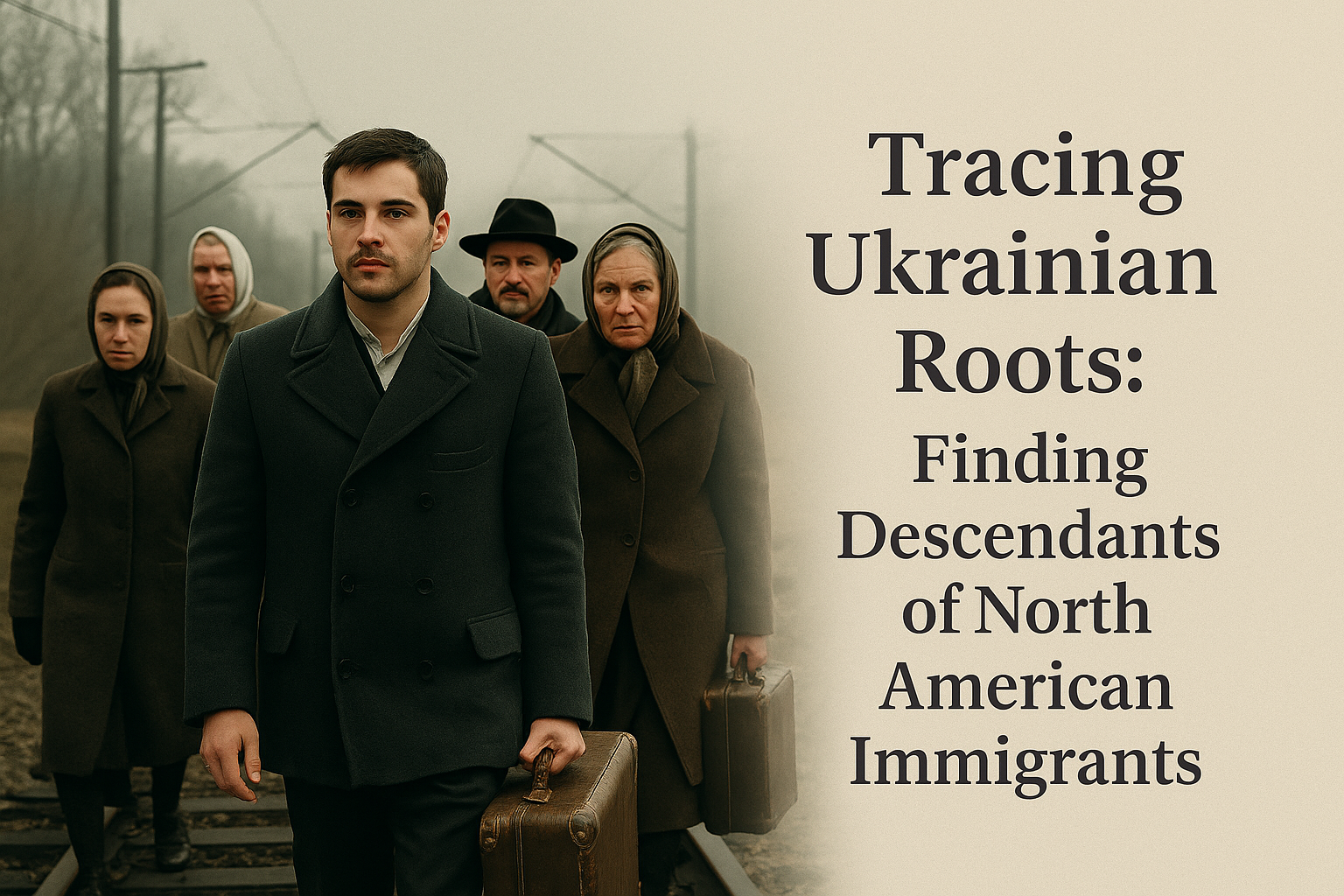How to Find Your Ancestors in Ukraine: A Guide for Descendants of Ukrainian Immigrants in America
Tracing your family roots is more than just discovering an old surname or faded photograph — it’s about reconnecting with a deeper sense of belonging that stretches across generations and continents. Many descendants of Ukrainian immigrants in South America — particularly in Argentina, Brazil, and Paraguay — are now searching for answers: where did their ancestors come from, what villages did they live in, what were their names, and why did they leave? Finding your ancestors in Ukraine is possible — it’s not always easy, but it’s a rewarding journey that can be done on your own or with expert help.
Ukrainian Migration to South America: A Brief History
Large waves of Ukrainians emigrated to Argentina, Brazil, and Paraguay in the late 19th and early 20th centuries. Most came from regions like Galicia (then part of Austria-Hungary), Bukovina, and Volhynia. Driven by poverty, lack of land, and hopes for a better life, they established Ukrainian villages in their new countries, built churches and schools, and preserved their language and traditions. Today, many of their letters, church records, and family documents can serve as a valuable starting point for research.
Where to Begin
Start with what you already have. Talk to your oldest living relatives and write down names, approximate birth or marriage dates, and — most importantly — places of origin. Look through old letters, photos, and church documents. Even a single word on the back of a photo can help identify a village. Pay close attention to how names were changed or adapted after immigration — for example, Mykhailo might have become Miguel, or Hrytsko might have been recorded as Gregorio in Spanish-language documents.
Where to Find Documents in Ukraine
The key to discovering your Ukrainian ancestors lies in the archives. Regional state archives in Ukraine — especially those in Lviv, Ternopil, Ivano-Frankivsk, Chernivtsi, Rivne, and Volyn — hold valuable genealogical materials. These include church metrical records (births, marriages, deaths), confession lists, land and tax registers, and school or military records. For ancestors from Galicia or Bukovina, Austrian and Polish-era records may also be available, usually held in the state archives in Lviv, Ivano-Frankivsk, or Chernivtsi.
Church records from the Greek Catholic, Orthodox, or Roman Catholic traditions are especially important. For Bukovina ancestors, the Chernivtsi State Archive is often the main source. If your relatives came from the Volhynia region, the Rivne State Archive may hold what you need. Some records may be written in Ukrainian, Polish, German, Romanian, or Church Slavonic, depending on the region and historical period.
Doing Research Remotely
Even if you live in Argentina or Brazil, you can begin your search from abroad. Many Ukrainian archives have online catalogs — though not always complete, they can help guide your next steps. You can send formal research requests to archives by email, in Ukrainian, English, or Spanish. In many cases, responses come within a few weeks. You can also search international genealogy platforms such as FamilySearch, JewishGen, Genealogy Indexer, or Galicia Genealogy, which offer digitized Ukrainian records and indexes. It’s also worth checking historical newspapers from Ukrainian communities in South America — they often mention family names and villages.
Challenges You May Encounter
There are several common challenges in Ukrainian genealogy. First, place names have changed — especially during the Soviet period — or entire villages may no longer exist. Second, some archives were destroyed during World War II or later. And third, language variation: names and records may appear in Ukrainian, Polish, German, Romanian, or Russian, depending on the era. In many cases, it’s important to get professional help to read and interpret old documents accurately.
How Professionals Can Help
Ukrainian genealogists can access archives in person, read historical scripts, and navigate complex archival systems. They can locate original documents proving family connections, build your family tree, compile a family book, or prepare the paperwork for citizenship or nationality confirmation. Even if your information is incomplete or uncertain, an experienced researcher can find leads that aren't visible from the outside.
Real-Life Success Stories
A family from Rosario, Argentina, reached out with only one clue — a village called “Zalishchyky” and the surname “Tkachuk.” Within three months, researchers found church records in the Lviv archive and reconstructed a six-generation family tree. A family from São Paulo discovered that their ancestors came from Bukovina and that the family name had changed from “Shevchuk” to “Chevchik” after immigration. A marriage record from 1908 turned out to be the missing link in restoring their family history.
Conclusion: Open the Door to Your Story
Researching your Ukrainian ancestry is not only about discovering the past — it's about reclaiming a part of who you are. It’s a journey through time that connects today’s generation with those who once dreamed of a better life across the ocean. Your story is waiting to be uncovered.
Want to learn more about your Ukrainian roots?
Send us what information you have — we’ll offer a free initial assessment and help you take the first step.

